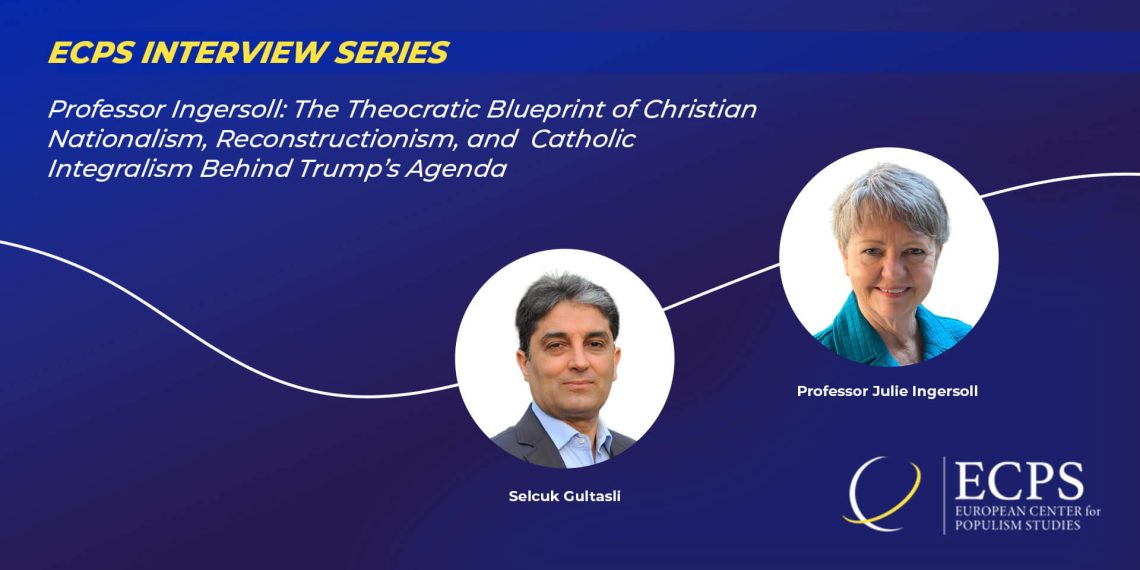In an exclusive interview with ECPS, Professor Julie Ingersoll exposes how Christian Nationalism, Reconstructionism, and Catholic Integralism have coalesced into a powerful theocratic force behind Trump’s second presidency. She explains how these groups reject democracy, embrace authoritarian governance, and aim to reshape American society under biblical rule. “They all seek to make religion the dominant force in shaping society,” she warns, highlighting Project 2025 and figures like Paula White as key players in this movement. This is not a fleeting moment but a systematic, decades-long effort to transform US governance.
Interview by Selcuk Gultasli
For decades, the influence of religion on American politics has been a subject of intense debate. While the United States was founded on principles of religious freedom, it has never fully separated faith from governance. Now, with Donald Trump’s second presidency, this intersection is more powerful than ever, as a broad-based coalition of Christian movements seeks to shape policy and redefine democracy itself.
In a revealing interview with the European Center for Populism Studies (ECPS), Dr. Julie Ingersoll, Professor of Philosophy & Religious Studies and Religious Studies Program Coordinator at the University of North Florida, unpacks how Christian Reconstructionism, Christian Nationalism, and Catholic Integralism have coalesced into a powerful force behind Trump’s agenda and the broader transformation of American governance.
"It’s huge. And this is where we get into expanding our understanding from Christian Reconstructionism specifically to the broad-based coalition of various versions of Christianity that are in power at the moment," says Professor Ingersoll.
She traces this movement’s ideological roots back 75 years—to Christian Reconstructionists, who developed a biblical worldview that sought to apply scripture to every aspect of life. Over time, they joined forces with Charismatic Pentecostals, forming what is now called the New Apostolic Reformation (NAR)—a movement that believes in spiritual warfare, divine authority, and the division of people into “God’s people” and “Satan’s people.”
But their influence doesn’t stop there. A third group—Catholic Integralists—have also entered the political fray, advocating for a return to a society in which the church and state are united under a hierarchical order. These groups, Professor Ingersoll warns, are not merely religious factions but political actors with a shared vision of theocratic governance.
"They all seek to make religion the dominant force in shaping how society functions. While they may have different visions of what that should look like, they agree on the goal," she explains.
One of the most striking elements of this coalition is its rejection of democracy. While they tolerate elections when they serve their interests, they are equally comfortable with authoritarian rule, monarchy, or any system that delivers a biblically ordered society.
As these forces gain more power—through figures like Paula White in the White House or Project 2025 at the Heritage Foundation— Professor Ingersoll argues that ignoring their long-term ambitions is dangerous. This is not a fleeting moment in American politics; it is a systematic effort to reshape the country’s future.


